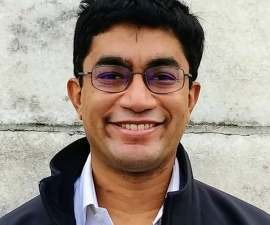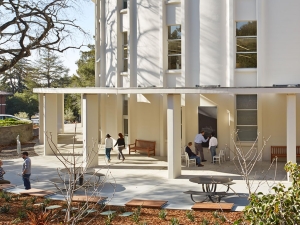

Research Bio
Venkatesan Guruswami is a Professor in the Departments of EECS and Mathematics, and a Senior Scientist at the Simons Institute for the Theory of Computing at UC Berkeley. Guruswami's research interests span many areas of theoretical computer science and related mathematics, including coding theory, approximate optimization, randomness in computing, and computational complexity. His work on list error-correction has led to codes with minimum possible redundancy for correcting any desired fraction of worst-case errors. His recent works include notable progress on polar codes, deletion-correcting codes, codes for cloud storage, and constraint satisfaction problems.
Prof. Guruswami has served the theory community in several leadership roles. He is currently serving as Editor-in-Chief of the Journal of the ACM, and was previously Editor-in-Chief of the ACM Transactions on Computation Theory, and on the editorial boards of SIAM Journal on Computing, JACM, and IEEE Trans. Info. Theory. He has served as program committee chair for the CCC, FOCS, ISIT, FSTTCS, and ITCS conferences, and was President of the Computational Complexity Foundation during 2018-21.
Prof. Guruswami is the recipient of a Guggenheim Fellowship, a Simons Investigator award, the Presburger Award, Packard and Sloan Fellowships, the ACM Doctoral Dissertation Award, and an IEEE Information Theory Society Paper Award. He was an invited speaker at the 2010 International Congress of Mathematicians. He is a fellow of the ACM (2017), IEEE (2019), and AMS (2023).
He received his B. Tech. degree from the Indian Institute of Technology, Madras, in 1997 which named him a Distinguished Alumnus in 2023. Guruswami received his Ph.D. in Computer Science from the Massachusetts Institute of Technology in 2001. He was a Miller Research Fellow at UC Berkeley during 2001-02 and previously held faculty positions in Computer Science at the University of Washington and Carnegie Mellon University prior to moving to his current position in January 2022.
Research Expertise and Interest
theoretical computer science, coding theory, approximate optimization, randomness in computation, computational complexity

